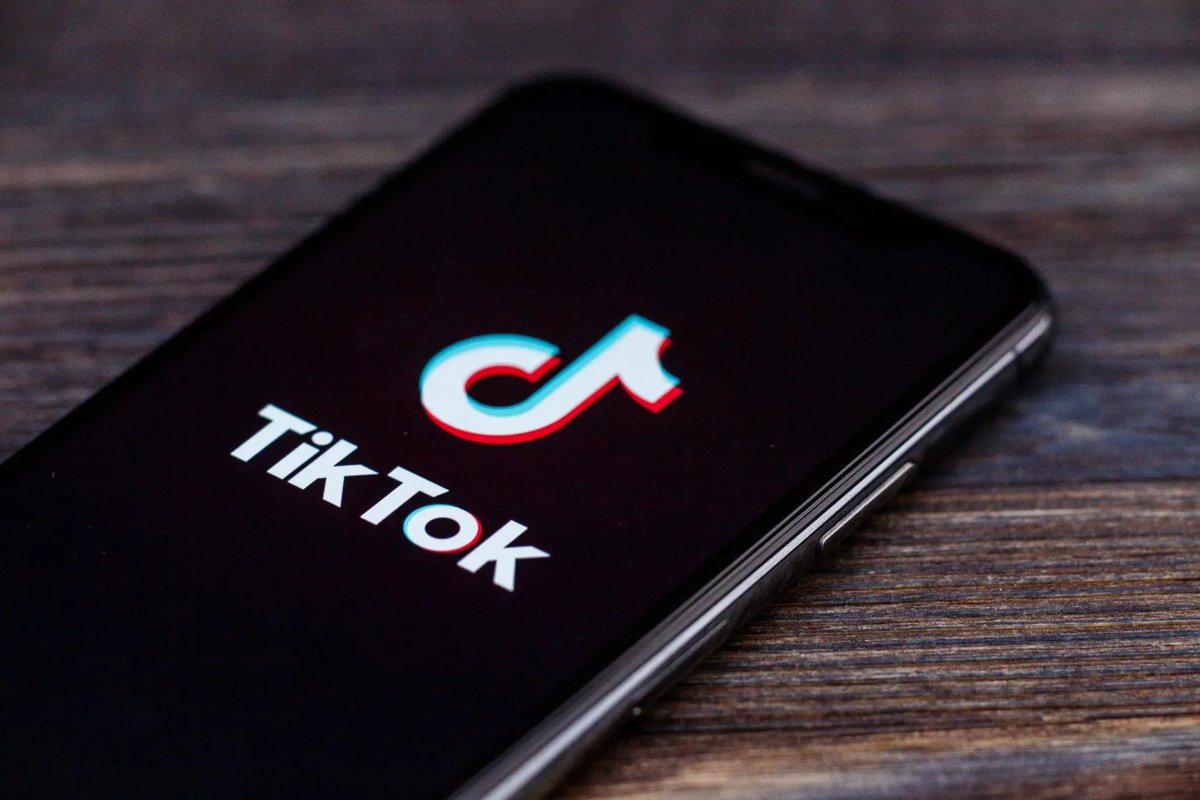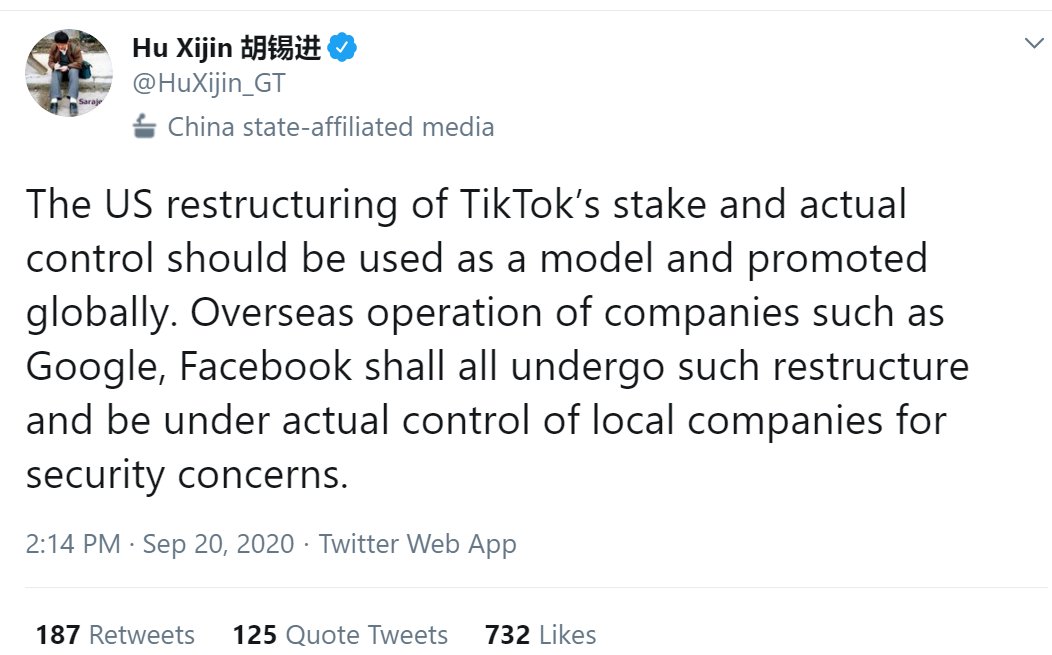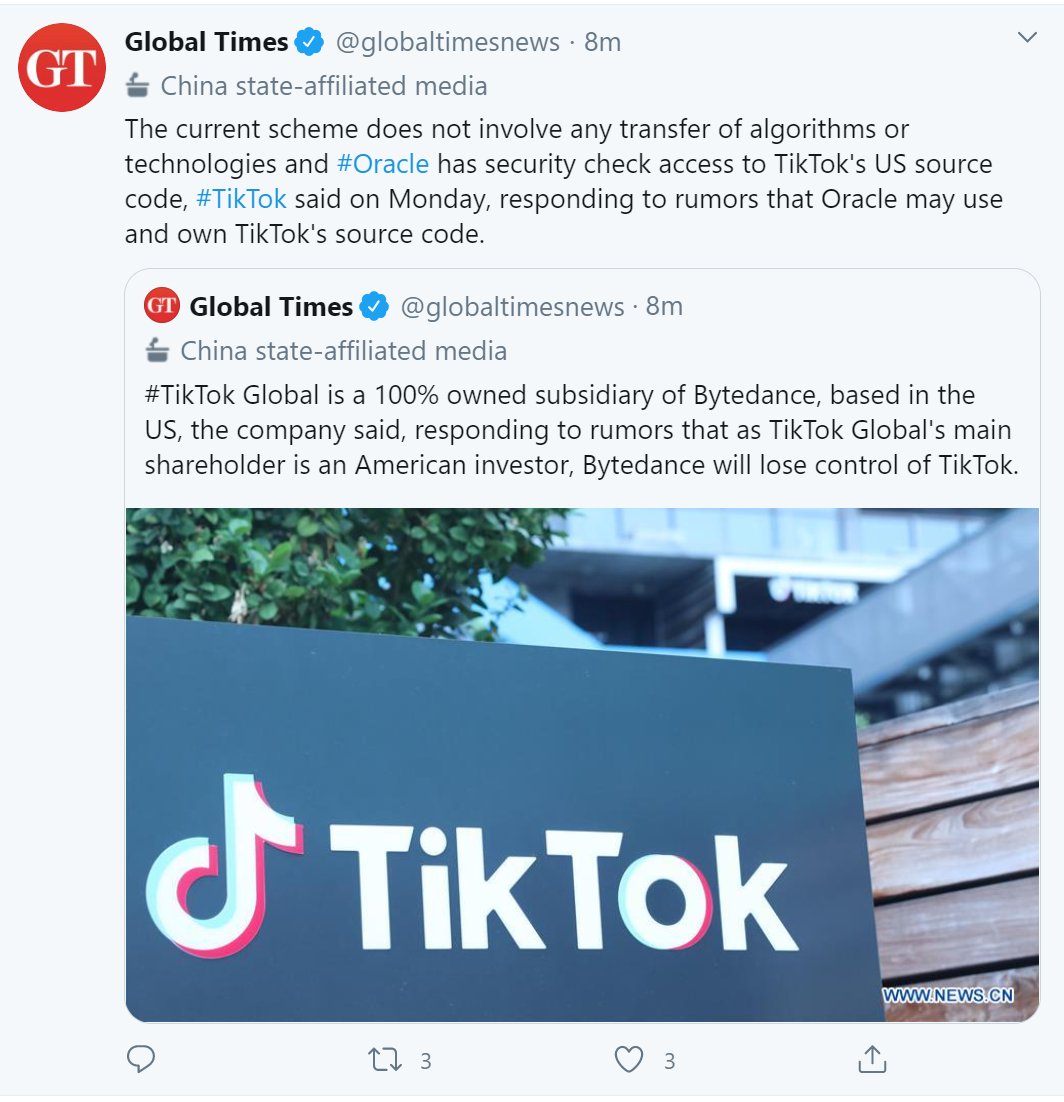
The Biden admin and #TikTok have drafted a preliminary agreement to resolve national security concerns but face hurdles over the terms, as the platform negotiates to keep operating in the United States without major changes to its ownership structure.
nytimes.com/2022/09/26/tec…
nytimes.com/2022/09/26/tec…
I've written previously about what the threats of #TikTok are to democratic societies for @SecureDemocracy.
There are two main ones:
1⃣ Data exfiltration
2⃣ Information manipulation
So far, policy efforts such as via #CFIUS have focused chiefly on 1⃣ .
securingdemocracy.gmfus.org/qa-with-lindsa…
There are two main ones:
1⃣ Data exfiltration
2⃣ Information manipulation
So far, policy efforts such as via #CFIUS have focused chiefly on 1⃣ .
securingdemocracy.gmfus.org/qa-with-lindsa…

And for @lawfareblog on what the US and its democratic partners -- many of whom like Australia🇦🇺 have raised and continue to raise similar concerns -- should be doing.
lawfareblog.com/way-forward-us…
lawfareblog.com/way-forward-us…
The draft proposal reported by @LaurenSHirsch @dmccabe @ktbenner @GlennThrush purportedly seeks to address both concerns:
1⃣ TikTok would store its American data solely on servers in the US, probably run by Oracle.
This was a version of the scuttled Trump #CFIUS deal.
1⃣ TikTok would store its American data solely on servers in the US, probably run by Oracle.
This was a version of the scuttled Trump #CFIUS deal.
What's new is #2:
2⃣ Oracle is expected to monitor TikTok’s powerful algorithms that determine the content that the app recommends.
If true, this setup would be a major technical & policy innovation with broader implications for oversight of algorithmic influence is conducted.
2⃣ Oracle is expected to monitor TikTok’s powerful algorithms that determine the content that the app recommends.
If true, this setup would be a major technical & policy innovation with broader implications for oversight of algorithmic influence is conducted.
At @SecureDemocracy, we track authoritarian influence operations on social media across Facebook, Twitter, and YouTube and match them up with official government statements to see how Russia, China, and Iran use tech platforms to spread propaganda.
securingdemocracy.gmfus.org/hamilton-dashb…
securingdemocracy.gmfus.org/hamilton-dashb…
Authoritarian influence on #TikTok is much harder to track due to the ephemeral nature of the videos that fly by.
Will #Oracle be responsible for developing a technical solution to monitor #TikTok for Chinese infoinfluence?
We've given thought to how to do this: it's not easy.
Will #Oracle be responsible for developing a technical solution to monitor #TikTok for Chinese infoinfluence?
We've given thought to how to do this: it's not easy.
How much user content gets monitored? Who can access it? How do you measure algorithmic influence? If Oracle did identify an issue, what's the response?
Lots to unpack as we wait the final deal, but great scoop from the @nytimes team.
Lots to unpack as we wait the final deal, but great scoop from the @nytimes team.
https://twitter.com/LaurenSHirsch/status/1574375643147550720?s=20&t=Z_RhHrK4niD8DPLkuQXcjg
• • •
Missing some Tweet in this thread? You can try to
force a refresh








